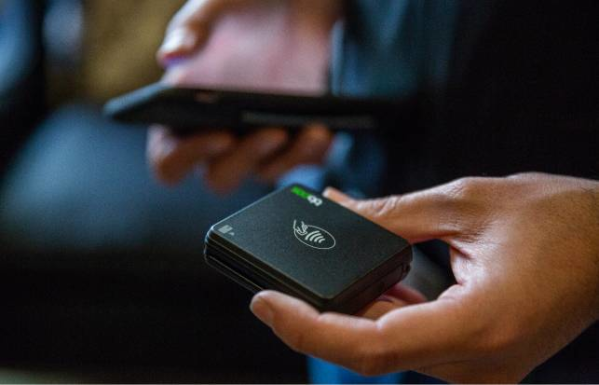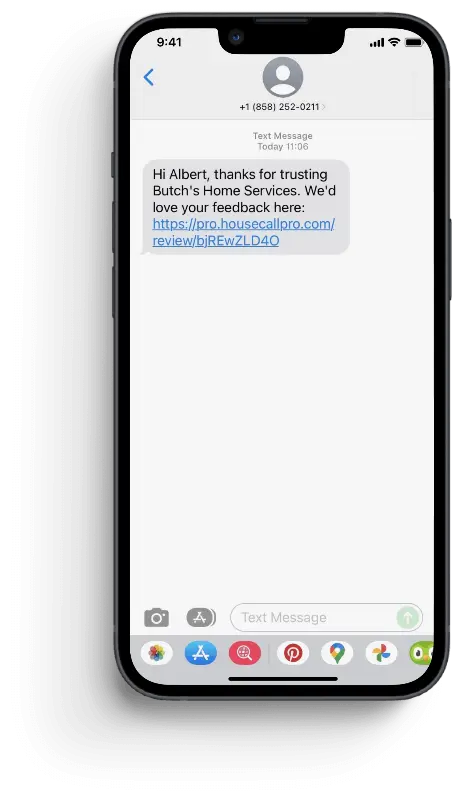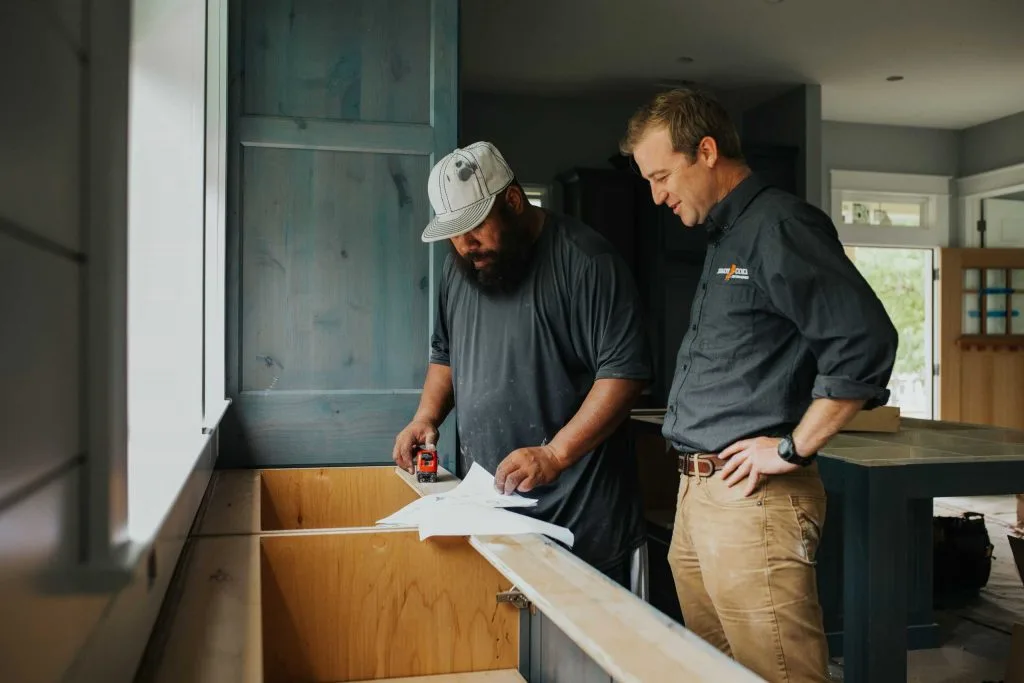
The HVAC industry is always evolving. As technology continues to improve, industry professionals are finding new and improved ways of providing service. At Housecall Pro, we aim to make life easier for HVAC professionals to provide quality, reliable service consistently.
For HVAC businesses looking to better improve service, the key is to stay current with the latest and greatest trends. These trends could very well dictate the direction of the business not only into 2025 but also into the future. These HVAC trends are going to dictate the immediate future of the industry.
HVAC Industry Trends & Statistics of 2024
Though we are looking forward to the HVAC trends of 2025, what about the current year? Things evolve on a year-to-year basis. Though they may not be earth-shattering trends, each of these has an impact on things both now and will continue to do so in the future.
Some of these trends will continue to be a focus throughout the rest of 2024 and well into 2025. HVAC magazines and websites have already been exploring the topic, leading to the most important trends for 2024.
Predictive Maintenance
Smart devices like smart meters, sensors, and thermostats have already become commonplace. The rate of installation of those devices continues to rise because they provide seamless connectivity. Users and technicians can access systems remotely and even monitor connected building systems at one time.
With real-time data on airflow, temperature, and humidity, technicians can identify patterns of energy consumption and potential problems long before they happen. All of this data allows technicians to effectively schedule proactive maintenance, minimize downtime, and address any potential malfunctions before they have a chance to cause issues.
Ductless Solutions
Older buildings are very difficult to update with air conditioning, which is why ductless HVAC solutions are being explored. Even if you have an older building with ducts, they are typically plagued with things like gaps and holes that lead to sizable air leaks.
With ductless technology, there is greater flexibility in both heating and cooling applied to individual areas. Mini-split heat pumps are great for structures that don’t have ductwork already running through the system. Installing traditional central air and heat is not ideal in that setting and can lead to greater energy inefficiencies.
Improved Customer Experience
In order to successfully grow an HVAC business, the focus on customer service is a must. What some contractors do not realize is that the customer experience is a comprehensive, all-inclusive thing. From the time they first look up your business to the completion of service, it all matters.
The most effective HVAC businesses are analyzing their current business practices and looking at where improvements can be made. Moving to electronic communications has been the biggest move. Online scheduling, invoice delivery, and customer communication have streamlined the process and created a smoother experience for the average customer.
Green Solutions
The majority of businesses are making the move to being eco-friendly. With green initiatives, the goal is to move to a more energy-efficient solution state of mind. That shift creates opportunities for solar panels in both commercial and residential structures, high-efficiency HVAC systems, and more.
This is one of the HVAC trends that has been coming for years and will likely be a focus for years to come. As we look to reduce our overall carbon footprint and become more efficient, home and business owners will look to things like their HVAC system to start. HVAC businesses will be at the forefront of the movement.
Top 13 HVAC Industry & Market Trends for 2025
While each of the aforementioned trends will play an important role in 2025, they are just a few of many. The industry continues to evolve at all levels and chance has been coming.
An integral part of going through any transition is having the best HVAC software. HVAC software can help improve communication, scheduling, payment methods, customer communication, and so much more. Which trends in HVAC will be in demand in 2025?
1. Smarter Trends
The most important theme to be found within the HVAC industry is the move to “smart” devices. Smart homes, smartphones, and even smart HVAC systems are being more in demand than ever before. Sensors, self-regulating tools, remote control temperature adjustments, and more are all now commonplace.
With the implementation of these devices, customers are now able to better implement their energy controls. Technology has given us the ability to more efficiently and accurately control heating and cooling.
The good thing is that several organizations provide simple guides for manufacturers and contractors. This allows technicians to provide better, safer customer service, which is crucial for businesses.
2. Greater Control
Homeowners, now more than ever, are demanding superior control when it comes to their HVAC systems. With the implementation of smart thermostats, home and business owners are now given that control, able to set different temperatures in different areas of the home at different times.
Though it isn’t exactly one of the new HVAC trends, it is definitely one of the largest and most important. Homeowners are looking for convenience and being able to control temperatures in the home simply and easily is huge.
HVAC businesses need to be able to know how to repair and program these devices. Even by offering advice on things like zoning for homeowners, it can create the kind of connection with home and business owners that puts HVAC businesses at the forefront of mind.
3. Geothermal
There has been talk that geothermal heat pumps could be the eco-friendly heating and cooling solution that we have been looking for. Unfortunately, they seem to have taken a backseat to things like solar panels and other potential energy (and money) saving solutions. There is a bit of buzz within the industry that this could be the time for geothermal solutions.
As of now, geothermal heat pumps make up roughly 1% of the HVAC market in the U.S. Now that Congress has reinstated the tax credit for geothermal technology, some industry forecasters are expecting (or perhaps hoping) for a bump in overall demand, awareness, and installations of geothermal heating and cooling solutions.
It is estimated that there are roughly 50,000 geothermal heat pumps installed in the United States each year. As an HVAC company, it is important to be aware of this development. If there is a bump in the number of installations of geothermal heat pumps, will you be ready to handle that increased demand?
4. Wide Array of Payment Options
Once upon a time, almost all transactions were paid for in cash. A trend that isn’t necessarily exclusive to trends in HVAC is moving away from cash transactions entirely. That largely has to do with the fact that there are more payment methods available than ever before, and customers want more payment solutions through which to pay their invoices.

Having a mobile point-of-sale (POS) system is a must for HVAC companies. It is effortless to capture convenient payments at both homes and commercial businesses. While some businesses still find value in physically writing out invoices, it is far more inconvenient to both the customer and business than other available options.
One of the most important HVAC trends for businesses is offering more convenient payment methods. With a simple POS system in place, businesses can accept credit cards, checks, online payments, and more without batting an eye. Sometimes customers delay payments simply because making that payment is inconvenient. Provide more options and it will cut down on the number of payments that have to be chased.
5. Providing a Personal Touch
Customers are beginning to appreciate the businesses that don’t treat them as just another number. One of the quiet HVAC trends that is proving to be important is providing more of a personal touch to each customer experience. Determining what that personal touch will be depends on the situation and the customer.
According to a customer survey held by State of Global Customer Service, an estimated 78% of younger customers said that they expect customer service representatives to know their contact information and purchase history as soon as a call begins. Having an effective customer relationship management (CRM) tool is now necessary.
Having effective relationship management software makes it far easier to provide a personal touch. Notes can be kept on each customer to allow for a truly personalized experience each time. Delivering a higher level of customer service can mean a lot of different things, but customers tend to remember the little things that might not seem all that important in the moment.
Free ebook download: The Ultimate Guide to Customer Experience for Home Service Companies
6. Embracing the Internet of Things (IoT)
Go back to the start of the decade and you no doubt heard about the Internet of Things (IoT) quite a bit. The term related to Wi-Fi-enabled devices and the list of equipment and appliances that now have the capability has grown exponentially. Refrigerators, stereos, televisions, and even thermostats are now capable of connecting to the internet.
The HVAC industry is now moving into the smart technology niche. It is estimated that there are more than 14 million homes in the United States that currently have some kind of smart technology device or product. Given the growing availability and reduction in the price of many of these devices, those numbers are only going to go up in the future.
As it relates to trends in HVAC, that means having to adapt and learn more about these Wi-Fi-enabled products. Learning how to effectively manage smart home systems, smart thermostats, and other devices will allow companies to handle a wider range of issues. More importantly, it provides another avenue for companies to demonstrate value to the customer at a time when value is a critical part of business.
7. Going Green
Though it was touched on as being one of the most important trends in HVAC for 2024, the move to greener, more efficient services will be just as important in 2025. At a customer level, there is more concern than ever before about using products and services that have a positive impact on the environment. The ability of HVAC companies to meet that trend is going to be important in 2025 and beyond.
According to GWI, more customers than ever are willing to pay for more expensive products as long as they are eco-friendly. An estimated 61% of millennials lead the way though it is somewhat surprising that 46% of Baby Boomer customers are willing to pay more for products and services that have a positive impact on the environment.
By offering better, more efficient products and services, your business can satisfy one of the biggest trends in HVAC. Doing so allows a business to capture a larger share of the market and also promote bigger ticket items as well. Moreover, it presents positive optics to customers when an HVAC business has its eye on doing right by the environment.
Get In Touch: 858-842-5746
Software built for HVAC contractors
On average, Pros increase monthly revenue generated through Housecall Pro by 50% after their first year.
See plan options and feature breakdown on our pricing page.
8. HVAC Network
One of the biggest HVAC trends involves connectivity. As more HVAC units are being connected to WiFi, it is providing a different connectivity than ever before. We can now control our HVAC systems with smartphones, tablets, and other portable devices. Managing that connectivity and using it to drive convenience and performance is critical.
Sensors can be placed on a variety of HVAC equipment, allowing the entire system to communicate. Even better, it allows technicians to respond to data more efficiently and effectively than ever before. Rather than simply having the user adjust their system, the system can react to historical data and do it for them.
Trends can be created based on time of day and year, allowing users to remain comfortable without having to think about what the system is set to. HVAC systems can also be set up to detect outdoor conditions and the trends of occupants, creating an automated heating and cooling system for rooms whether they are occupied or not. It is a way to provide maximum comfort while also providing greater energy savings in the long run.
9. Automated Customer Service
Customer communication has changed quite a bit in a relatively short period of time. Though phone calls do still take place, they are happening with less frequency than ever. Customers are perfectly fine receiving text and email communications.
The good news for HVAC businesses is that companies can now automate those communications. With the right customer relationship management software, messages can be crafted to reach specific customers. That means a more personalized touch without having to invest the time that it may have required in the past.
Having automated service options will also free up time for both staff and technicians. That time can go to other areas of the business, allowing better use of manpower while also keeping customer service consistent and strong.
10. Mobile-First Communication
The days of communicating with a phone call are slowly dwindling. Millennials and Gen Z are preferring to communicate through digital communications now more than ever. As the older generation begins to thin, the number of customers choosing digital communications grows. As it turns out, the trend is also true of HVAC employees.

As of 2019, a survey from SlickText showed that almost 45% of HVAC workers preferred receiving texts over emails. That number has no doubt grown given how quick and easy it is to send a text regarding a job. Being able to communicate via text allows technicians to respond in a timely manner without having to stop in the middle of a job to take a phone call.
Creating a streamlined method of communication is critical. Reducing the number of phone calls between the office and technicians will lead to fewer frustrations and ensure that everyone is able to focus on the job rather than calls. It also allows dispatchers to send fast communications rather than having to attempt to get technicians on the phone. A minute or two might not sound like big time savings, but that adds up over time.
11. Focusing on Company Culture
Though many of the HVAC trends focus on the equipment and customer experience, that doesn’t encompass everything. Some of the most important trends within the industry revolve around the structure and culture of HVAC companies. If things aren’t working at ground zero, the customer experience isn’t going to work.
HVAC companies are putting a focus on the overall culture of the organization. Filling the ranks is one thing, but filling the ranks with the right people is crucial. Company culture is proving to be an integral part of creating a successful business. Each company has to find and create its own culture and can’t just copy and paste from other businesses.
A popular strategy used to create a positive company culture is incentivizing performance. Providing awards and perks for particular achievements is a great way to get people to be their best. Though it can be difficult to measure performance, HVAC software can help create a template and allow businesses to get a better idea of how their technicians are performing throughout the year.
12. More People Working in the Industry
One of the most noticeable HVAC trends involves just how many people are working within the industry. Demand isn’t going away, especially with higher temperatures than ever before occurring throughout the year. So, it shouldn’t come as a surprise that there are now more people working within the industry than ever before.
The employment numbers for the HVAC industry are breaking records. There are more than 1.2 million people in the U.S. alone working within the industry. There is an estimated growth prediction of 15% through 2026, illustrating the health of the industry and the need for more staff and technicians going forward.
The majority of HVAC businesses have no doubt seen an uptick in growth in their own shops. Competition is popping up all the time and there is perhaps more money in the industry than there has ever been before. Businesses need to keep that in mind and consider both growth and recruiting the right people to fill critical positions. Which leads to the next of the biggest trends in HVAC.
13. Improved Technician Recruitment
While it is critical to focus on the needs of the customer, none of that is possible without great HVAC technicians. One of the most important trends in HVAC is putting a focus on recruiting and hiring better talent for the position.
Before there can be a focus on interview questions or company fit, companies need to draw the right candidates. There is an expectation that HVAC jobs will continue to grow at a 15% clip through 2026 and possibly beyond. Companies are trying to meet that demand by finding and recruiting new HVAC talent.
Though each technician has their own list of requirements when working for a company, there are a few things to keep in mind. Refining current technology and making onboarding new talent easier will improve the infrastructure of the business and ensure that the right people are being hired and integrated. It can be tough to keep ahead of staffing issues, but this is something that all HVAC companies need to be constantly thinking about.
Grow Your HVAC Business with Housecall Pro
The key to improving and growing your business is to ensure that you have the right tools at your disposal. With Housecall Pro’s 14-day free trial, you can keep ahead of developing HVAC trends and ensure that your business is connected every step of the way.
Meeting the latest and greatest trends in HVAC involves more work than meets the eye. When your business has the essential tools for the job, things become a lot easier. Whether it be HVAC marketing, improving the customer experience, or simply keeping up with HVAC trends, there are better ways to be prepared.






